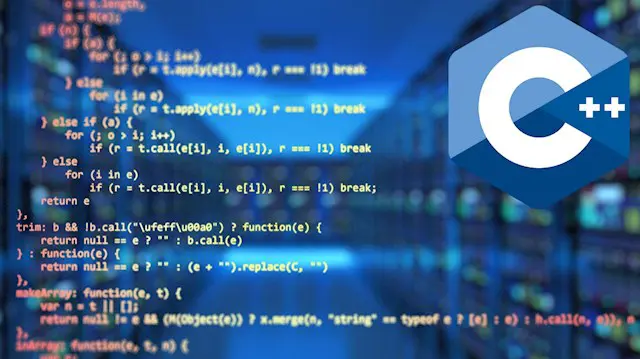
C++ Programming (beginner to guru)
Self-paced videos, Lifetime access, Study material, Certification prep, Technical support, Course Completion Certificate
Uplatz
Summary
- Reed courses certificate of completion - Free
- Uplatz Certificate of Completion - Free
Add to basket or enquire
Overview
Uplatz offers comprehensive training on C++ Programming. This is video-based online course (self-paced training). You will be awarded Course Completion Certificate at the end of the course.
Learn the fundamentals of programming in the C++ programming language, including iteration, decision branching, data types and expression.
This is a self-paced course that provides an introduction to the C++ programming language. Among the topics covered is the development of command-line programs that utilize different data types, expressions, decision branching, and iteration to solve problems. Students learn to program in C++ through the lectures and the labs. C++ programming material is presented over eight weeks of interactive lectures with weekly quizzes to assess your understanding of the material Students will experience hands-on practice writing C++ programs through ten lab challenges.
Students will experience the development cycle by compiling their C++ programs from human-readable source code to machine-readable object code. They will then link their objects to create an executable that can be run interactively.
Currently, C++ is the 4th most popular language in the world, according to the TIOBE index. It’s used in various areas where high-performance software is needed. For example, Adobe products, Unreal Engine, and browsers like Chrome and Firefox are built with C++.
Course Objectives
- Analyze C++ assignments and apply its components in program development
- Apply basic C++ I/O operations with different data types
- Design C++ expressions using arithmetic operations (including understanding their limitations, such as integer truncation, round-off error, division by zero, narrowing and widening conversions, casting, precedence, and standard math library functions)
- Design C++ expressions using relational operators (including understanding floating point equality)
- Design C++ expressions using logical operators (including short-circuit)
- Design C++ selection statements (including nested selection)
- Design C++ repetition statements (including count-controlled versus event-controlled, sentinel-controlled)
Curriculum
Course media
Description
C++ Programming - Course Curriculum
- Introduction to C++ Programming
- Debugging Tools - Objects - Types - Values
- Operators - Expressions - Control Flow - Functions
- Input - Output - Classes
- Temporary Objects - Functors - Templates
- Lambda Expressions - Classes - Inheritance
- Virtual Functions and Run-time Polymorphism
- Containers - Iterators - Algorithms - Templates
- Time Measurements - Exceptions - References
- Smart Pointers and References
- Moving - Forwarding - Concurrency
- Multithreads and Mutexes
- Condition Variables and Atomics
- Atomic Memory Models and Undefined Behavior
- Best Practices - Tips - Pitfalls in C++
Who is this course for?
Everyone
Requirements
Passion to learn and succeed!
Career path
- C++ Programmer
- Software Engineer
- Programmer - C, C++
- Tech Lead
- Application Developer
- Embedded Developer
Questions and answers
Currently there are no Q&As for this course. Be the first to ask a question.
Certificates
Reed courses certificate of completion
Digital certificate - Included
Will be downloadable when all lectures have been completed
Uplatz Certificate of Completion
Digital certificate - Included
Course Completion Certificate by Uplatz
Reviews
Currently there are no reviews for this course. Be the first to leave a review.
Legal information
This course is advertised on reed.co.uk by the Course Provider, whose terms and conditions apply. Purchases are made directly from the Course Provider, and as such, content and materials are supplied by the Course Provider directly. Reed is acting as agent and not reseller in relation to this course. Reed's only responsibility is to facilitate your payment for the course. It is your responsibility to review and agree to the Course Provider's terms and conditions and satisfy yourself as to the suitability of the course you intend to purchase. Reed will not have any responsibility for the content of the course and/or associated materials.


